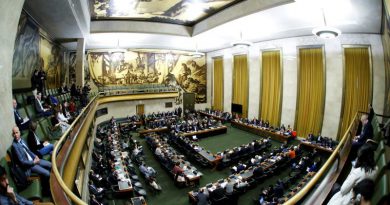Turkey says it may negotiate maritime demarcation with EgyptTurkey says it may negotiate maritime demarcation with Egypt
Ankara (Reuters) – Turkey and Egypt could negotiate and sign a maritime demarcation deal in the eastern Mediterranean if their ties, which have been strained, allow for such a move, Turkish Foreign Minister Mevlut Cavusoglu said on Wednesday.
Ties between them have been frosty since Egypt’s army ousted Muslim Brotherhood President Mohammed Mursi, an ally of President Tayyip Erdogan, in 2013. They have also been at odds over maritime jurisdiction and offshore resources, as well as differences in Libya, where they backed opposing sides in the civil war.
Last month, Egypt announced the start of a bid round for oil and natural gas exploration and exploitation in 24 blocks, including some in the Mediterranean.
Cavusoglu told a news conference that Egypt’s exploration bids had respected Turkey’s continental shelf in the region and Ankara viewed this positively.
“As the two countries with the longest coastlines in the eastern Mediterranean, if our ties and the conditions allow it, we can also negotiate a maritime demarcation deal with Egypt and sign it amongst ourselves,” Cavusoglu said.
Turkey signed a similar agreement with Libya’s Tripoli-based Government of National Accord (GNA) in 2019, prompting an angry response from Greece, which rejected the accord as illegal.
Ankara and Athens have been at odds over the extent of their continental shelves and rights to offshore hydrocarbon resources in the eastern Mediterranean for decades. A similar deal between Greece and Egypt last year infuriated Turkey.
After trading insults and accusations for years, Turkey and Egypt have recently lowered the temperature of their public comments. However, Turkish officials have said there are still no political talks between the two sides, and that any contacts are solely for intelligence reasons.
Erdogan’s Islamist-rooted AK Party supported Mursi’s short-lived Egyptian government. Many Brotherhood members and their supporters have fled to Turkey since its activities were banned in Egypt.



